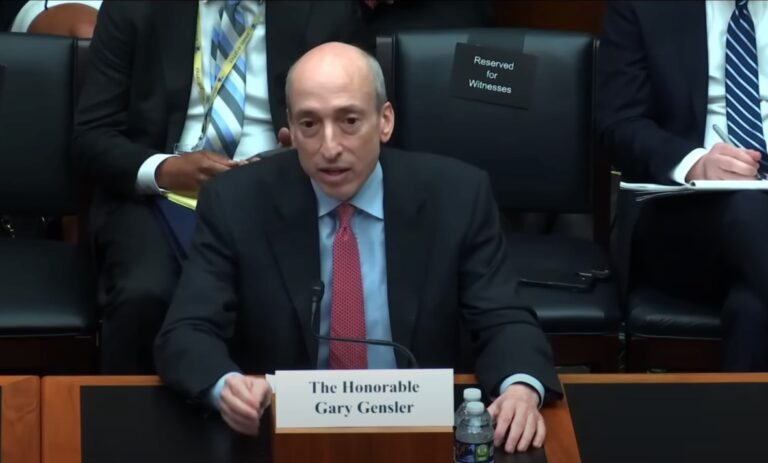In his prepared remarks for the Columbia Law School conference, U.S. Securities and Exchange Commission (SEC) Chair Gary Gensler emphasized the importance of mandatory disclosure in protecting investors and promoting market efficiency, especially in the context of cryptocurrency markets.
Gensler began his speech by expressing his personal views, which do not necessarily represent those of his fellow SEC Commissioners or staff, setting a tone of individual conviction on the issues discussed.
Gensler’s remarks were part of a tribute to Jack Coffee, a prominent figure in securities law, highlighting the foundational principles of the federal securities laws established by President Franklin Roosevelt and Congress nearly 90 years ago. These principles mandate that companies seeking public investment must ensure “complete and truthful disclosure” of risks, a doctrine that Gensler firmly supports, especially in today’s diverse financial landscape.
Delving into the historical arguments for mandatory disclosure, Gensler revisited Coffee’s 1984 paper which underscored the concept of information about securities as a public good. Gensler echoed Coffee’s concerns that relying solely on market-based incentives could lead to a significant underproduction of valuable information for investors, stressing the essential role of the official sector in maintaining a robust disclosure system.
Gensler also touched upon the misalignment between the interests of company management and shareholders, a discrepancy that mandatory disclosure aims to bridge. He reiterated the fundamental role of complete and truthful disclosure in enabling efficient valuation and price discovery, thereby fostering more efficient markets.
In his analysis, Gensler critiqued the voluntary disclosure model, pointing out its inadequacy in ensuring that companies provide crucial information to investors. This perspective is informed by the recognition that public company disclosure serves the public interest and should not be left to the discretion of company managers.
One of the most notable aspects of Gensler’s address was his discussion on the relevance of these principles to the crypto securities markets. Gensler emphasized the current challenges in the crypto space, particularly the resistance against mandatory disclosure requirements. He highlighted the critical need for transparency and investor protection in these markets, suggesting that adherence to established disclosure norms could serve as a “disinfectant” against market manipulation and fraud.
Gensler concluded his remarks by reaffirming the enduring value of Roosevelt and Coffee’s advocacy for mandatory disclosure. He pointed out the historical consequences of inadequate market transparency, drawing parallels with the current debate over disclosure requirements in the crypto sector. Gensler stands firm in his belief that full, fair, and truthful disclosure is not only beneficial for protecting investors but also crucial for lowering the cost of capital for issuers and enhancing market efficiency.








